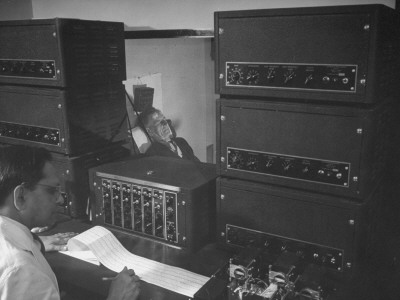November is Epilepsy Awareness Month in the USA and so just as I did with autism, this month I will devote a majority of posts to focusing on the research on epilepsy.
Notice: In rare cases, musicogenic seizures have been reported. As with all the health research I write about, please consult your doctor before applying any of this research to your own circumstances!
From a study by V. N. Sidorenko :
The purpose of the study was to evaluate the effectiveness of Medical Resonance Therapy Music (MRT-Music) as a psycho-physiological method for the treatment of epilepsy in severe epileptic patients, whose attacks persevered despite comprehensive drug treatments. Under investigation were frequency and severity of epileptic attacks, the subjective state, the dynamics of the inter-paroxysmal symptoms and the individual parameters of the functional asymmetry of the brain (IPFA).
Frequency and severity of the paroxysms changed positively in 80 percent of the cases: frequency of attacks were reduced by 75 percent and many attacks manifested in the form of abortive variants. The paroxysmal component, the degree of amnesia and the polymorphism of the attacks were reduced. Such positive changes were 4 times less frequent in the control group. Changes in subjective state were 90 percent positive: the patients felt more healthy, were calmer, had a better mood and fewer ups and downs in mood, released tension, and reduced unrest, wrath, and irritation.
The evaluation of the Minnesota Multiphasic Personality Inventory (MMPI) showed clear improvements in the inter-paroxysmal clinical picture, particularly in those paramaters that characterise the general degree of sickness, psychasthenic and paranoid traits, hypochondria, aggression and depressive states. Similar positive changes in the control group were observed two times less frequently. The changes of the IPFA-values were positive in 73.3 percent of the patients (27.8 percent in controls), had differently directed shiftings, were dependent on the initial level, and were determined by the location of the epileptic focus.
I was curious about this Medical Resonance Therapy music; I’d run into references to it for a long time but had no frame of reference to decide if it was legitimate or not. However, their website says that it’s approved by the German government and available in German pharmacies. Having lived in Germany, I can say that I have faith in German science and their government’s oversight of approved medical treatments. The founder of this system composes in a somewhat classical style: here’s a page of samples so you can judge for yourself. I don’t have any experience with them and so therefore cannot recommend spending $360.00 for a CD, but similar results might be obtained from playing easily available classical music.
However, this method does seem to work according to the study. A reduction in the frequency of attacks by 75% is amazing in and of itself, not to mention the other benefits the patients had.
I would be very interested in seeing further research into this: whether the location of the epileptic focus, or other factors, are determinant in how well the music works.
